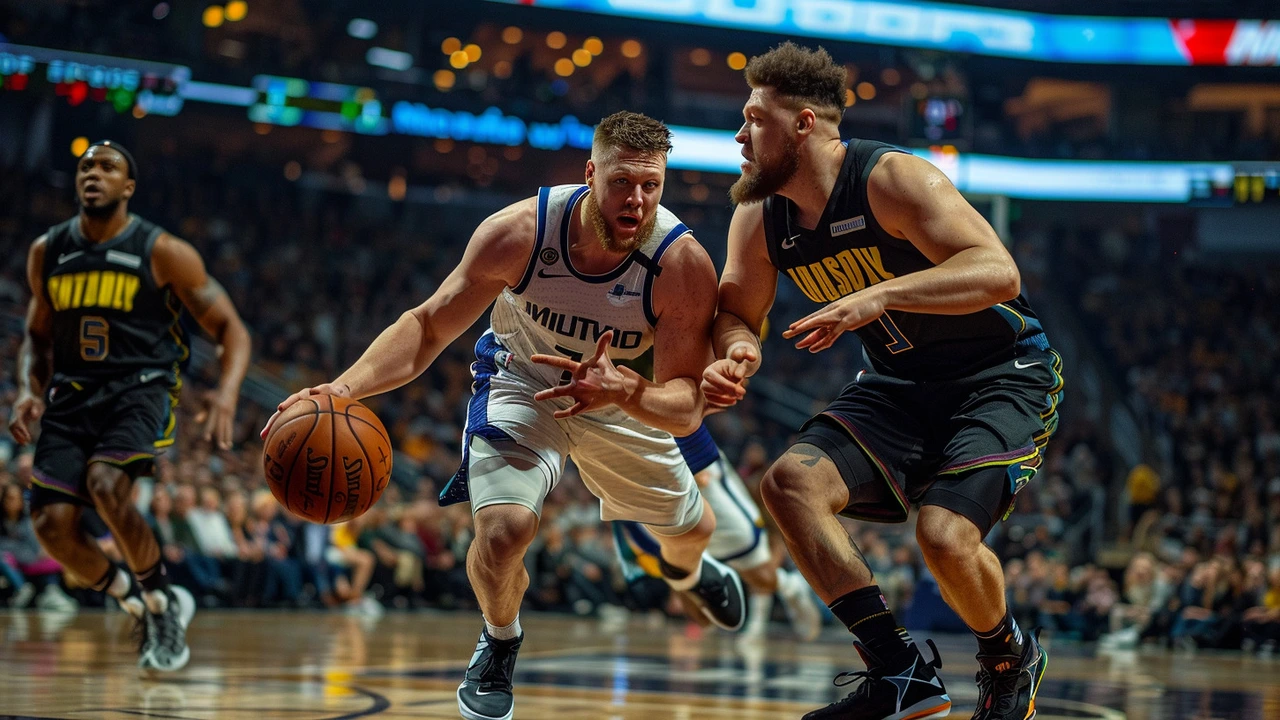Timberwolves Take Commanding 2-0 Lead Over Nuggets in NBA Conference Semifinals

In Sports
In a striking demonstration of resilience and strategic finesse, the Minnesota Timberwolves captured a decisive victory over the defending NBA champions, the Denver Nuggets, in Game 2 of their Western Conference Semifinals clash. The game, which ended with a score of 106-80, not only fortified the Timberwolves' position in the series but also exposed several key strengths and weaknesses on both teams.
Game 2 Detailed Analysis
The absence of Rudy Gobert, named a finalist for the Defensive Player of the Year, didn't deter the Timberwolves as they showcased a stern defensive strategy to curb Denver's scoring opportunities. This game painted a stark contrast to usual play as the usually high-scoring duo of Jamal Murray and Michael Porter Jr. were quelled, unable to register any points in the first quarter. The strategic placements and substitutions by Timberwolves' coach emphasized disruption and agility, effectively unsettling the Nuggets' offensive plans.
Nuggets' usual formidable gameplay was further disrupted by the Timberwolves', particularly their ability to exert pressure all across the court. Denver's players found themselves frequently trapped, a technique that Minnesota exploited to great effect, hindering Denver from finding their rhythm. Such tactical trapping led to turnovers and suboptimal shots by the Nuggets, underpinning a distressing first half for the reigning champions.
However, it was not just the tactical defensive game played by the Timberwolves that stole the spotlight; their offensive execution was equally impressive. Both Anthony Edwards and Karl-Anthony Towns led the charge with 27 points each, seamlessly slashing through Denver's defenses. Their ability to convert on fast breaks and execute under pressure was exemplary and proved to be a cornerstone of Minnesota's strategy in this crucial playoff game.
The Role of Aaron Gordon
While Denver struggled to ignite their usual offensive flare, Aaron Gordon stood out, emerging as a solitary beacon for the Nuggets. Scoring 20 points in the midst of a struggled team performance highlights his crucial role and potential as a difference-maker in upcoming games. Despite the loss, Gordon’s efforts suggest that he could inspire a bounce-back if the rest of the team syncs well with his level of performance.
Looking ahead, Game 3 poses an even greater challenge for Denver as they face the potential return of Rudy Gobert to the Timberwolves lineup. His presence in the paint and capability to alter offensive strategies merely by his defensive skills could spell more trouble for the Nuggets. For Minnesota, their home court victories in this series present a psychological advantage, placing enormous pressure on Denver to recalibrate and retalify in the next match-up.
Both teams have their tasks cut out for themselves. The Timberwolves need to maintain their defensive excellence and capitalize on offensive opportunities. On the flip side, the Nuggets should focus on overcoming the psychological barrier set by the recent defeats and finding ways to disrupt Minnesota’s rhythm. Adjustments, both in strategy and mental fortitude, will be essential as the series progresses.
This series not only tests physical prowess but also strategic shrewdness and the ability to adapt under playoff pressure. As the Timberwolves eye a series sweep, the Nuggets face a grueling test of tenacity and team spirit. One can only speculate how the return of Gobert might influence the dynamics of this already intense NBA playoff series.
Write a comment